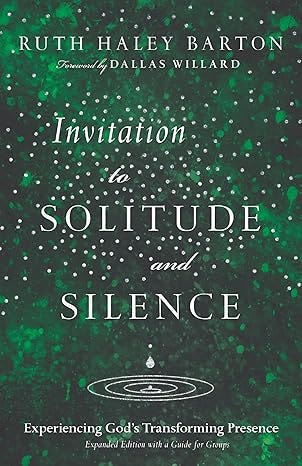The French Christian philosopher Blaise Pascal had the following to say about distraction and happiness:
When I have occasionally set myself to consider the different distractions of men…I have discovered that all their unhappiness arises from one single fact, that they cannot stay quietly in their room.
There is good evidence that Pascal was right.
Distraction tends to decrease our happiness. A study conducted at Harvard University revealed that when people were engaged in some activity, such as reading or shopping, they tended to be happier when they were focused on the activity itself. When they were thinking about something else, they were less happy. In fact, whether and where their minds wandered was a better predictor of happiness than what there were actually doing at that moment. Being present in the moment fosters happiness. Being distracted undermines it. In our age of multitasking, always-open email programs, social media, and smartphones, we are constantly connected to others. It seems that these near-constant distractions are undermining our happiness.
What can we do about this?
There are several practical suggestions to consider that will help limit the distractions that are undermining our happiness and, more importantly, hindering a transformative union with God that guides us towards maturity in Christ. Most of them are easy to imagine, but often much more difficult for us to actually do.
First, take breaks from Facebook, Twitter, or whatever social media you use. It could be a day, a week, or a month. Whenever I do this, I never regret it.
Second, limit, if possible, your times reading and replying to emails to 1-3 set times per day if possible. When email is open and chirping at me, it is impossible to focus on the task at hand as I’m notified on a regular basis that I just received an email. So, close it out to protect blocks of time, at work and at home. I include the following in my email signature, to help set the expectations of others about the timeliness of my replies to their emails to me: Note: I generally avoid checking email evenings and weekends.
Third, if possible leave the cell phone behind or off during your kid’s soccer match, while you are out with friends for dinner, having an important or mundane conversation with your spouse or a friend, or spending time with God. In fact, we would all do well to follow Pascal’s advice and carve out some time to be alone. Solitude and silence, while initially uncomfortable, can add depth and richness to our lives if we regularly practice them. They can connect us to ourselves in ways that help us and enable us to better love others. They can connect us to God’s presence, love, and voice in ways that we often miss due to all of the noise, both literal and figurative, in our lives.
If Jesus needed and engaged in the practices of solitude and silence, then surely we do as well.
The times that I have regularly practiced solitude and silence have been very good for me, my relationships with others, and my connection with God. If you’re unsure where to begin, I would highly recommend Ruth Haley Barton’s Invitation to Solitude and Silence. Each chapter is short, readable, and offers concrete practices for those interested in trying this out. I’m rereading and re-engaging in the practices from this book, and am finding it very good for my soul.





